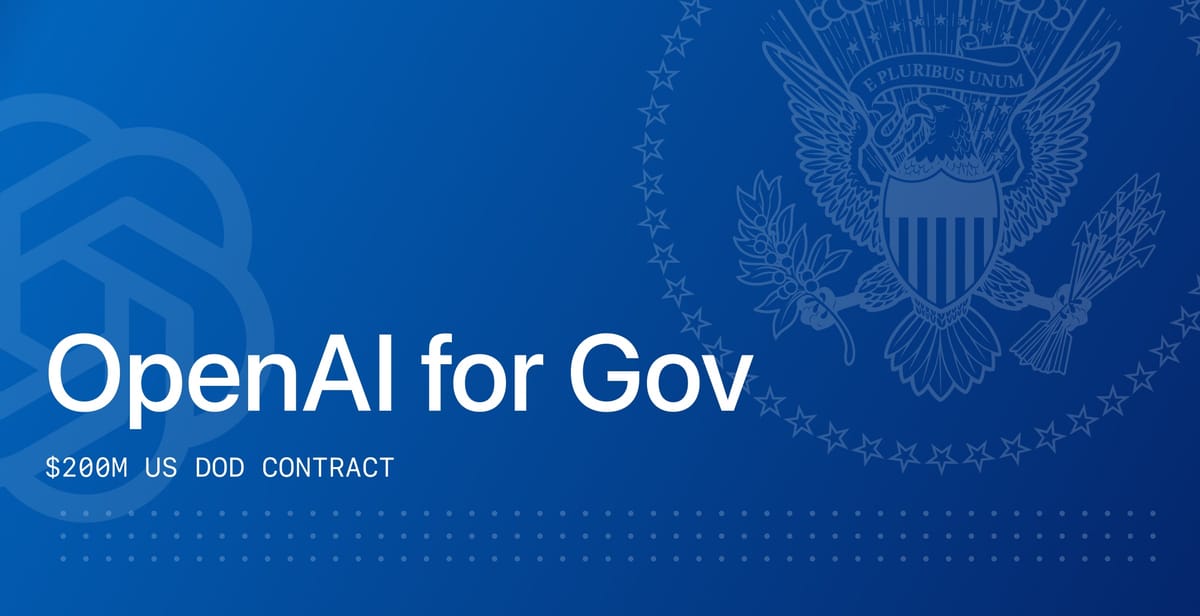ChatGPT maker OpenAI just landed a $200 million contract with the Defense Department, officially ending its brief era of refusing military work. The Pentagon announced the one-year deal Monday, saying OpenAI will develop AI prototypes for "critical national security challenges in both warfighting and enterprise domains."
Key Points
- $200 million, one year, 12 bidders—OpenAI won.
- First deal under the new “OpenAI for Government” umbrella.
- Marks a policy U-turn after OpenAI dropped its blanket ban on military uses last year.
- Puts fresh pressure on Palantir, Anthropic, and other defense-AI rivals.
The contract comes alongside OpenAI's new "OpenAI for Government" a new division that folds in earlier collaborations—like ChatGPT Gov and trials at Los Alamos and the Air Force Research Lab—while promising custom models, hands-on support, and a peek at the product roadmap for agencies willing to bet on its tech. In plain English: Uncle Sam now gets the Enterprise feature set, plus a bat-phone to Sam Altman’s engineers.
This represents a stunning about-face. At the start of 2024, OpenAI's terms explicitly banned using its models for "weapons development" or "military and warfare." That language vanished from the policy in early 2024, replaced by a broader “don’t harm people” clause. Critics called it a stealth rewrite; OpenAI argues it simply clarifies that defensive or humanitarian missions are fair game. December’s partnership with drone-defense startup Anduril signaled where things were headed; this DoD deal makes it official.
OpenAI isn't alone in this military embrace. Rival Anthropic teamed up with Palantir and Amazon Web Services in November to provide AI models to intelligence agencies. Meta opened its Llama models to defense contractors. The AI industry has collectively decided that military work isn't just acceptable — it's necessary.
For OpenAI, the dollar figure matters less than the foot-in-the-door. Government tech budgets are sticky; once software is accredited for FedRAMP High or DoD IL5, agencies tend to renew. By bundling ChatGPT Gov—which already boasts 3,500 agencies and 18 million messages—and dangling bespoke national-security models, OpenAI wants to position itself as the default LLM vendor for federal, state, and local buyers.
Still, the company insists its usage policy forbids weapon development or kinetic targeting, a line it says the Pentagon contract won’t cross. Whether that distinction satisfies skeptics worried about AI-driven warfare is another story. For now, the cash is flowing, the roadmap is classified, and OpenAI is officially in the national-security club.
The Pentagon contract runs for one year with work happening primarily around Washington DC. OpenAI gets $2 million upfront with potential for the full $200 million if the pilot succeeds. Given the company's track record, this is likely just the beginning of a much larger military relationship.

